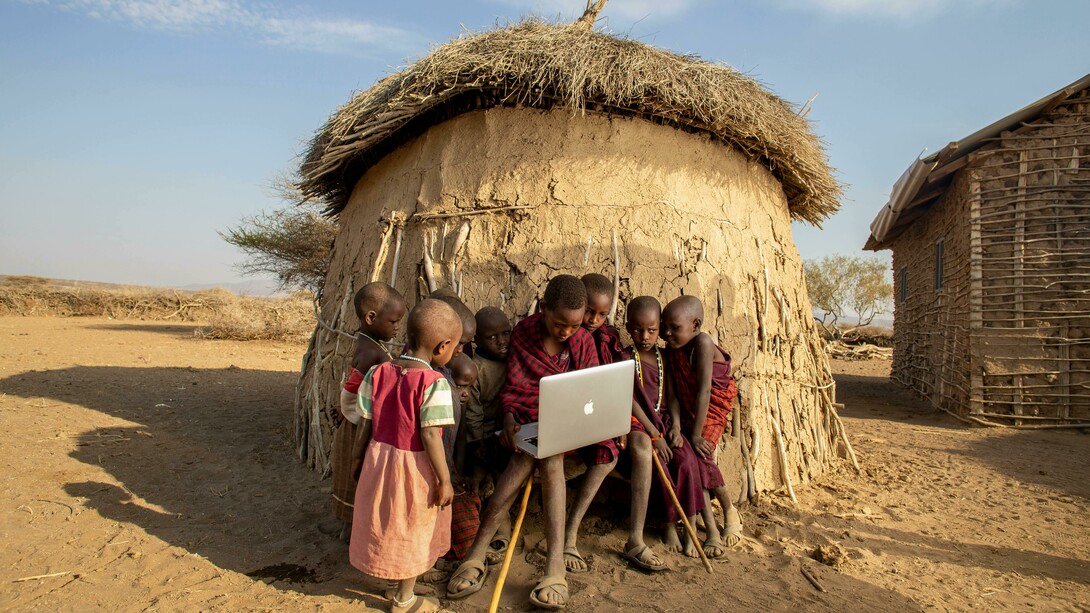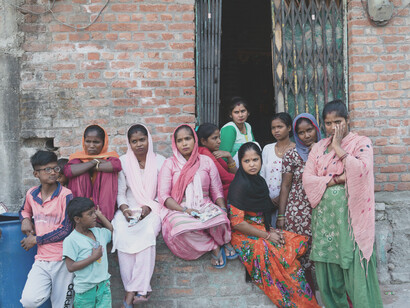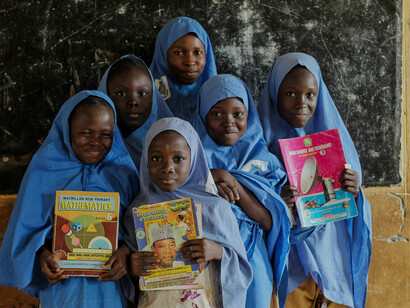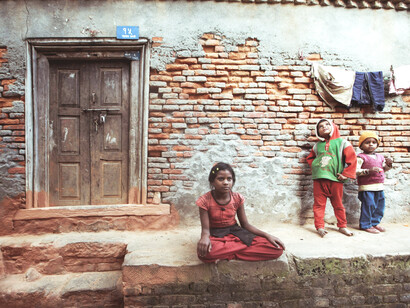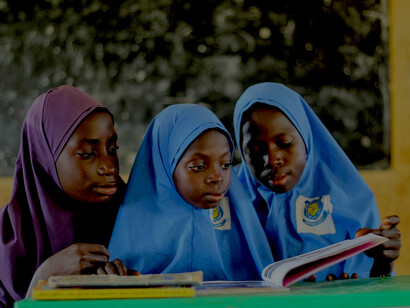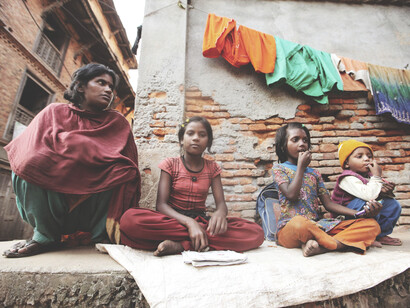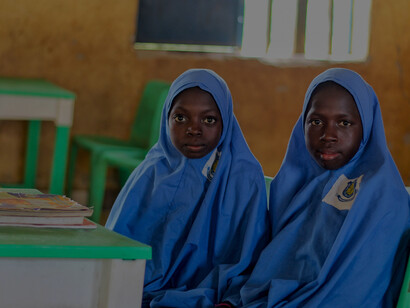Those who can make you believe absurdities can make you commit atrocities.
(Voltaire)
The first order of the day in development work is that we must overcome the old idea (that the world around us is greatly concerned about what one party or another thinks and stands for on the subject of development. It is we who must either speak up (hopefully with one voice) or not be heard at all.
Each of us should not be held back, because of passively adopted compromises with an ideology, to change our focus or rejecting traditional approaches when our observations so warrant.
What we need is to keep the freedom to transcend a non-performing development paradigm when it becomes obsolete. At any given time, we can break the cage of our theoretical framework, but beware not to fall into the next cage. We easily become prisoners of these frameworks. Ergo, “if we want, we can” act critically and escape and expand our understanding to include the more structural determination of maldevelopment. So, there is hope....
Consequently, paradigmatic compromises and the shattering of some ideological barriers will have to take place some time soon since multidisciplinary work has not carried us any further....
Social pressures can, rather quickly, become more apparent in our work, i.e., social change being demanded; and we in the development business must be keenly perceptive and receptive to these pressures. But we are not. We have too often lost sensitivity to the underlying non-technical problems of development and to real people’s needs as perceived by them. Every once in a while, however, someone among us breaks out of the apathy: Have you? If yes, what do you do next? Promoting a paradigm shift toward a development model with greater participation from within communities seems to be the direction to tackle head-on....
Our Western multidisciplinary development teams need to acquire a new tolerance and, at the same time, an aggressiveness that more decisively leads to recommended actions fostering equality for everyone—an equality that does not have to imply sameness. Our team members will perhaps have to rework their ethics (and/or their politics...?) to be able to change in this direction. It is time for our morality and for our sense of justice to catch up with our present professional capacities (and vice versa), reconciling technical progress with changing moral (and political) obligations.
Poverty is the worst form of violence, Gandhi wrote, and politics is the strongest determinant of poverty and hunger.
Draw your own conclusion about what this should mean in terms of development priorities... Predictably, those who have been impoverished also carry a disparate burden of the diseases of occupation and of poverty, to which we will have to pay more attention. Many of these manifest facets of inequality, which unfairly distributes certain health risks among the working class. So, in reviewing the health status of a given society, the health statistics will actually mirror the economic and class biases of that society. There can be no lasting health for all where governments fuel the fires of economic discrimination; stamping out those fires will have to become our business as development professionals.
We thus need to shift to a more political analysis of the (ultimately social) bases of how we interpret and practice our trade. We further need to exert a more organized collective skepticism about what we think is wrong in Western development praxis, questioning certain bases of the established routine(s).
We cannot have split allegiances: our scientific beliefs do fuse with our political and social outlook, and as development workers, we ought to be the natural attorneys of those rendered poor. For a physician like me, for example, medicine is a social science connecting me with development work, and politics is nothing but medicine on a grand scale (R. Virchow).
Nobody can demand left-leaning political positions from each of you readers. We nevertheless need to get out of the game of development as leading to maldevelopment (imitating of the West and dependency-creating) and need to focus on efforts toward real grassroots development (empowering, indigenous, and self-sustaining). But grassroots development that tackles the real structural problems of society lacks glamour in our environment and also, obviously, lacks funds....
Development is just not brought about by stability; it is stability that is achieved through development Some of us now recognize development itself as a malignant myth—a myth that, at best, offers economic measures that do not empower the poor. We thus face a major challenge to conventional wisdom in development/aid policy.
Preconceptions need to be assaulted. Only by directly confronting these preconceptions (mostly ideological...) can we arrive at a framework for meaningful strategic action. Moreover, we also need to make an effort to learn more about and understand the cultures of the people we work with rather than forcing their cultures to fit the West’s....
Why, then do our attempts at being comprehensive not achieve the expected results? It is the inherent complex nature of the problems of development that complicates our policy-making. The essence of the problem of underdevelopment transcends its interdisciplinary nature. Comprehensiveness cannot be achieved only by all-inclusiveness of the parts, but rather by creating (or adopting) a (new) philosophy into which all parts mesh.
The acquisition of such a philosophy has been mostly avoided so far, precisely because it automatically raises larger issues about the direction in which society should go and challenges the current system. We need new philosophies, methodologies, and processes that help us work toward a society inspired by a different worldview. We need tactics, but first we need innovative strategies. It is also necessary to pass from a state of critique to more concrete action(s). Tactics must be shifted from a commiserating position to one that offers more positive choices. A positive strategy will be most effective if efforts are made to go beyond the all-too-modest political goal of pursuing a minimum consensus package that mostly serves to alleviate guilt feelings in us.
We ought not retreat into helpless passivity either, watching a social and biological system deteriorate in front of our eyes. We can alter trends and avert catastrophes in development work if we recognize and exercise our own power to make a difference. We all carry around with us a bag of unexamined credos and this unexamined life is what comes under pressure when we are faced with making decisions on how to revert such negative trends.
Ideological (political) considerations, beyond science, will determine whether the new, emerging development paradigm (empowering, indigenous, and self-sustaining) will set the rules for real or yet more cosmetic changes to overcome maldevelopment...
One of the great dangers of our day is that we, development workers, become fatalists and allow maldevelopment to continue because we feel powerless. Maldevelopment is a socially-made problem that can be solved by people --but only if we proactively think it can be solved. Hopelessness and helplessness on our part will only allow the problem to continue. The same applies to our everyday, often undramatic lives. Fatalists are losers, and yet fatalism often is an underlying factor in the entire range of development work. A key difference between the rich and those rendered poor is that the rich feel power, a sense of having at least some control, and the knowledge that what they do can influence the future. The poor often feel powerless. If you know you cannot make it, you will not make it.
Social changes do not happen by chance
Social changes happen because people envision and then implement those changes. It is possible to plan the future, rather than fatalistically live it out. We can make a difference. But not if we are that band of well-intentioned, mostly middle-class development professionals exerting no clout to redress doomed development paths... Our challenge is thus to plan the future with the victims of underdevelopment, giving hope to the hopeless and being instrumental in the gradual acquisition of power by the powerless through work with them aimed at this specific end.
It is time for us to shift the discussion away from dealing with poverty as a given. Rather, the problem is one of redirecting power relationships away from those capitalist values that create inequality and toward those leading to a more egalitarian system.
Only by exposing the incompatibility between existing development priorities and the pressing real development needs of those rendered poor will we move toward more equality. Is it evasiveness, then, that many of us can be accused of? Or do we not know any better? Do we conveniently ignore the real priorities? We too often lack the necessary “active” attitude toward solving the social, political, and economic contradictions at the base of underdevelopment and its consequences, especially those contradictions among them that fall closer to our respective fields of expertise. This inaction has a corroding effect on us. We all have the temptation to turn decision-making on these matters over to others and so absolve ourselves of responsibility. Let’s face it: When scholarship and activism come up as alternative courses to follow in development work, it is activism that we tend to push aside.
Conclusions
I did not set out on the (ad)venture of writing this paper pretending to become an expert on development experts. On that I do not speak with final authority. Nevertheless, some inevitable conclusions flow from all the preceding. Critiquing the brand of “armchair science” applied to development work discussed in this piece can, I think, help give a needed new perspective on what is happening in our loose guild of development workers while we go through our own via dolorosa.
The supreme victory of power is that people do not care to challenge it in an open voice
Most of the issues brought up in this paper are not necessarily new to you. Yet seldom do (have) they arouse(d) your passion. To a marked degree, we all put these issues out of our minds. My final question is: Why? We do not speak of them, partly because our preoccupation with power is conventional and obsolete. My plea is that we cease evasion. Let us bring the power issue into full, candid, and open discussion. Let us see the dimensions of power, and let us see the means for countering it... And none of this will happen until we recognize the full reality of our situation. Therein lies the challenge (John Kenneth Galbraith).
In the Western tradition of development work, we keep calling for “more comprehensiveness,” “multidisciplinarity,” “unified paradigms,” and “integrated approaches to development,” and more precious time gets lost and squandered, because nothing basically changes. It is just a never-ending deception. “New” approaches of all sorts are tried for a few years, only to shed their usefulness after some dubiously successful or unsuccessful field trials have been completed or after a new fashion sweeps our professional literature. All this has added little to real solutions, precisely because it is the mode of thinking of traditional multidisciplinary team members (and of the people who hire them) that is itself the key problem. It is not until we succeed in generating some kind of new consensus, as scientists, to attack the root causes of maldevelopment within the structure of the system harboring them, that more workable and lasting solutions are going to emerge.
Academicians in our field also keep perennially concluding their research, calling for, indeed, more research before being definite about the interpretation of their findings. What is actually long overdue is some research on why we so often have this call for more research and why this behavior invariably dampens the strength of the policy implications of the findings, especially when these are grave and call for bitter medicine.
We occasionally do reflect on our behavior as human beings, but seldom do we look at ourselves as political actors—which we all are in one way or another—with the task of applying our knowledge and directing our efforts to resolve flagrant contradictions in society. We thus often end up causing or accepting the evils so many of us have actually undertaken to combat.
Much of what I have here critiqued about multidisciplinary teams also applies to the way many non-governmental organizations and private voluntary agencies make decisions and the way they carry out activities in the field. These organizations are also limited in their scope by ideological and political straitjackets, with, I would say, few exceptions. Thus, their involvement in the implementation of development projects is no assured panacea, as seems to be the prevailing myth.
Having so far expressed my disenchantment with Western multidisciplinary development work and teams, is there anything positive to be said about them? Something that deserves some credit?
The answer is YES. To me, multidisciplinary teams are a site for interaction that can serve as a true forum to air some of the issues discussed here. In development work, multidisciplinary teams have succeeded, to some extent, in raising public consciousness about world problems: they have educated governments and the media (is such a thing possible...?); they have served as a platform for more militant activities by a vast network of persons like myself and by voluntary grassroots associations that have sprung up around the world. Besides having helped identify world problems, multidisciplinary teams have started putting them on the political agenda. But all this cannot be generalized: As a rule, multidisciplinary teams are neither better nor worse than the individual members who control their operations.
The task ahead requires an ideological rapprochement among development workers and between them and the beneficiaries of development
Such rapport is certainly not easy to achieve, nor are there any signs that this process is significantly under way now. Only the tone, frequency, and content of our interactions will influence change. We can initiate or help precipitate more radical changes in working with the people if we “come out of the closet” and start moving in the direction of a brand of development that is empowering, indigenous, and self-sustaining. As Oliver Wendell Holmes said: “I think that, as life is action and passion, it is required of us that we share the passions and action of our time at peril of being judged not to have lived.”
Multidisciplinary work is at a turning point. It can use either a predominantly systems analysis approach or a distinct dialectical approach. If the former approach is followed in development work, the political power relations and class interests will not be considered at all or they will, but not in an appropriate context; social and political institutions will be taken as given. Therefore, recommendations will end up being rather palliative (conservative). Will that, then, lead to yet more masquerading exercises? Since what we need more is to deal with the real world, with its inescapable power-related constraints and contradictions, the latter (dialectical) approach would seem to be the more appropriate method to adopt since it would tend to help us better operationalize the rights of the different actors in light of existing power relations in development work, and that alone is a step in the right direction.
Could a systems and a dialectical approach be combined? Perhaps yes, if the latter predominates. Or, as others would say, what for? A dialectical approach by definition already is a systems approach...
In closing, let me say that I clearly do not pretend to have all the answers to the many questions that have here been raised. I hope readers are stimulated to contribute further to this old debate that continues to arouse so many of us. Write to me using this mere opportunity.
